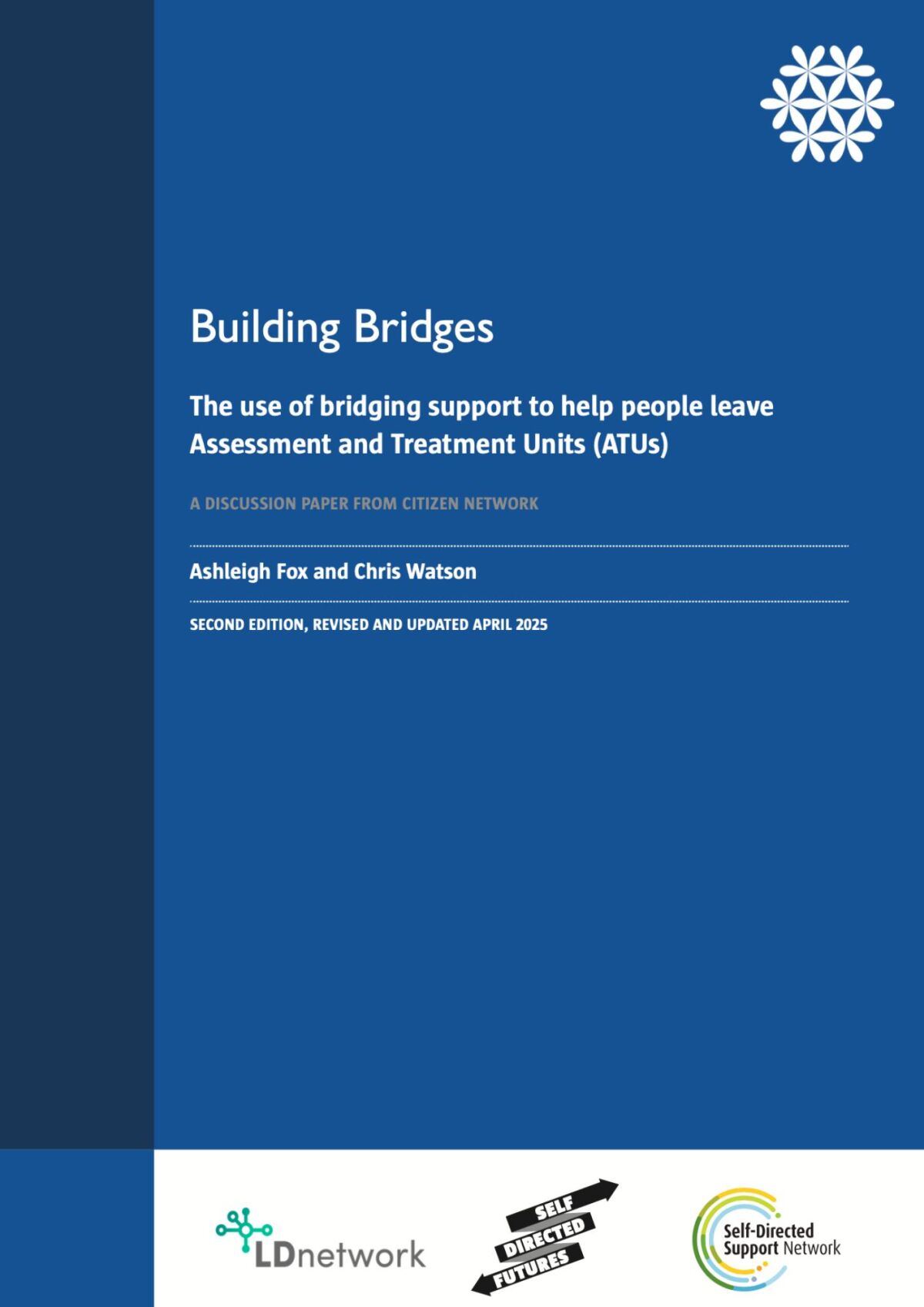A paper exploring how to help people leave Assessment and Treatment Units (ATUs).
Authors: Ashleigh Fox and Chris Watson
From the Preface:
The authors have written this paper to draw attention to Bridging Support as an effective, yet under utilised, solution for facilitating the discharge of individuals from Assessment and Treatment Units (ATUs).
As of December 2024, NHS England reports that approximately 2,495 individuals with learning disabilities and/or autism are in inpatient settings, reflecting a modest reduction from previous years. Despite initiatives like the Building the Right Support Action Plan (2022), which aimed to reduce hospital admissions, progress has been limited. Many individuals remain in restrictive environments due to systemic challenges such as inadequate community-based support and housing options.
Ashleigh Fox, a Registered Nurse for Learning Disabilities (RNLD), works for LD Network (Learning Disability Network), which pioneered the Bridging Support model. Ashleigh's approach stems from her extensive experience in crisis prevention, reducing restrictive practices, and supporting transitions from institutional settings. Notably, she was the whistleblower who exposed the abuse at Winterbourne View, a catalyst for reform in learning disability care.
Chris Watson leads Self Directed Futures and has been at the forefront of self-directed support and commissioning reform in England. Chris identified LD Network's work as a crucial component in the national strategy to close ATUs and transition individuals to inclusive community living.
The authors hope that commissioners, policymakers, and providers will take action to scale up Bridging Support, ensuring that fewer individuals remain in inappropriate settings and that the ATU model is ultimately phased out.
Read and download the free pdf in your browser, link below.

The publisher is Citizen Network. Building Bridges Second Edition © Ashleigh Fox and Chris Watson 2025.
Deinstitutionalisation, Inclusion, intellectual disabilities, Self-Directed Support, social care, England, Paper